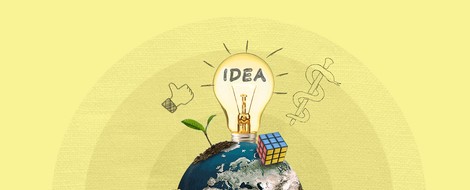Your podcast discovery platform
Curious minds select the most fascinating podcasts from around the world. Discover hand-piqd audio recommendations on your favorite topics.

piqer for: Boom and bust Health and Sanity Global finds Doing Good
Danielle Batist is an experienced freelance journalist, founder of Journopreneur and co-founder of the Constructive Journalism Project. She lived and worked all around the globe and covered global and local stories of poverty, exclusion and injustice. Increasingly, she moved beyond ‘problem-reporting’ to include stories about the solutions she found. She witnessed the birth of the new nation of South Sudan and interviewed the Dalai Lama. She reported for Al Jazeera, BBC and the Guardian and regularly advises independent media organisations on innovation and sustainability. She loves bringing stories to the world and finding the appropriate platforms to do so. The transformation of traditional media fascinates rather than scares her. While both the medium and the message are changing, she believes the need for good storytelling remains.
Enlightenment Now: Steven Pinker Brightens Up Our World View
Harvard University professor and author Steven Pinker has been telling us that ‘now is the best time to be alive’ for some time. He’s renewed his argument, first made famous in his 2011 book The Better Angels of Our Nature in his latest work called Enlightenment Now. It’s been hitting the headlines globally, with all sorts of famous folks endorsing it. (Bill Gates called it “My new favourite book of all time”.) I do recommend the book as a whole, but if you’re short on time, Pinker's various essays and recent media appearances should give you a decent sense of his argument.
The book fits nicely with the growing call for ‘constructive’ or ‘solutions’ journalism, as championed on this platform through the ‘Doing Good’ channel.
In this Spectator article, Pinker sets out how the news industry’s role could change:
"I have tried to avoid any assault on the ‘mainstream media’, but I do call out its habit of presenting every unsolved problem as a crisis, epidemic, or existential threat. Several correspondents who advocate a new ‘constructive journalism’ have told me they agree, and that the industry is beginning to reconsider the adage that bad news sells: it’s actually positive stories that get the most clicks and shares. But these friends advise me that it would be poison to suggest balancing bad news with good, which editors equate with human-interest fluff. The more effective argument is that reporting the solutions and improvements, not just the failures, contributes to accuracy. More important, it holds the powerful to account to a greater, not lesser degree: they can no longer throw up their hands and call problems intractable if such problems have in fact been solved in some places."
